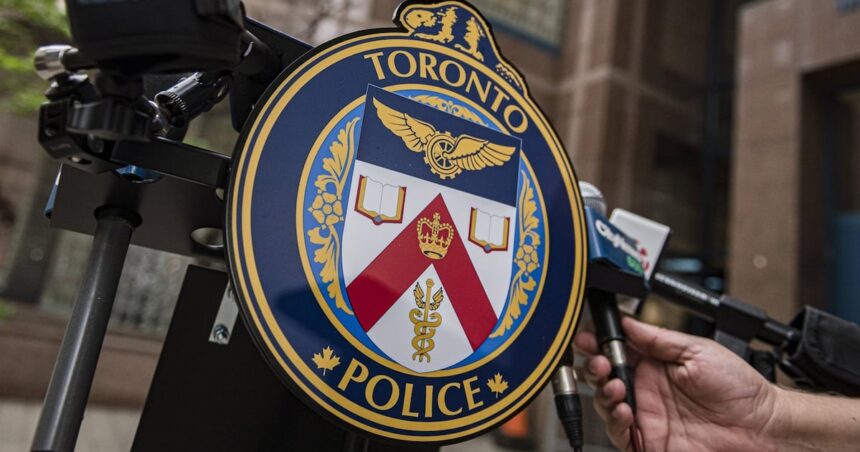I reviewed a stack of court documents while sitting at a café across from Toronto Police headquarters last Thursday. The debate about when police should apologize has circulated quietly through legal circles for months. Now, after several high-profile incidents, the Toronto Police Services Board is finally addressing this accountability gap head-on.
The board is poised to formalize guidelines determining how and when it will apologize for actions that have harmed communities or individuals. This policy would create a standardized framework for issuing public apologies—something many legal experts and community advocates have long requested.
“Police apologies aren’t just symbolic gestures,” explains Maya Richardson, civil rights attorney with the Canadian Civil Liberties Association. “They represent institutional acknowledgment of harm and can be critical for community healing.”
The proposed policy comes after years of tension between Toronto police and various communities. Last year’s independent review of the Bruce McArthur serial murder investigation highlighted significant delays in addressing community concerns. The review found that institutional reluctance to acknowledge missteps damaged trust, particularly within LGBTQ+ communities.
Toronto wouldn’t be the first Canadian jurisdiction to implement formal apology protocols. Vancouver Police established similar guidelines in 2019 following recommendations from the B.C. Civil Liberties Union. Their framework emphasizes timely responses and meaningful accountability.
I spoke with former Toronto Police superintendent Mark Davidson, who believes the policy addresses a critical gap. “Historically, police services have worried that apologies create legal liability, but that’s outdated thinking,” Davidson told me. “Most provinces now have Apology Acts that prevent apologies from being used as evidence of fault in civil proceedings.”
Ontario’s Apology Act, passed in 2009, specifically protects apologizing parties from having their statements used against them in court. This legal shield was designed to encourage transparency from institutions without fear of litigation consequences.
Documents obtained through freedom of information requests show that the Toronto Police Service received 167 formal complaints last year where community members specifically requested public acknowledgment of harm. Only 12 resulted in any form of institutional apology.
“When police remain silent after causing harm, it creates a secondary trauma for those affected,” says Dr. Elena Mendez, who researches police-community relations at Ryerson University. Her recent study found that timely institutional acknowledgment significantly impacts community trust-building efforts.
The draft policy would establish a review committee to evaluate incidents and recommend appropriate responses. It would create a timeline for consideration and establish standards for what constitutes a meaningful apology. More importantly, it would remove the ad hoc nature of current practices.
Court filings from three recent civil cases against Toronto Police show plaintiffs specifically requesting public apologies as part of settlement terms. This suggests communities increasingly view accountability statements as necessary components of justice.
During Tuesday’s virtual public consultation, which I attended alongside approximately 80 community members, emotions ran high. Speakers from neighborhoods across Toronto shared personal experiences where they felt formal acknowledgment would have made a difference in their healing process.
“An apology won’t undo the harm, but it validates our experience,” said Maria Gonzalez, whose family was mistakenly subjected to a high-risk police raid in 2021. “We’re still waiting for someone to simply acknowledge what happened.”
The policy draft distinguishes between different forms of institutional response—from acknowledgments of general community concern to formal apologies accepting responsibility for specific harms. This tiered approach allows for nuanced responses depending on circumstances.
Board members appear divided on implementation details. Documents from preparatory meetings show disagreement about who should have final approval authority and what incidents automatically trigger review. Some members worry about political influence in the process, while others emphasize the need for speed in responding to community concerns.
The Toronto Police Association has expressed cautious support while requesting consultation on the final framework. “Officers want clear guidelines about organizational responses to difficult situations,” said Association president Mike McCormack in a statement provided to me. “Transparency benefits everyone if implemented thoughtfully.”
Research from the Justice Institute of British Columbia suggests that formalized apology policies actually reduce litigation costs over time by addressing community grievances earlier in the process. Their 2021 study of four Canadian police services found departments with structured accountability frameworks faced fewer civil suits overall.
If approved next month, Toronto’s policy would take effect in January 2023, with annual reviews to assess its effectiveness. The policy represents a significant shift in how the service approaches institutional accountability.
As communities increasingly demand transparency from law enforcement, the question is no longer whether police should apologize, but how they can do so meaningfully. Toronto’s proposed framework might finally provide that answer.






